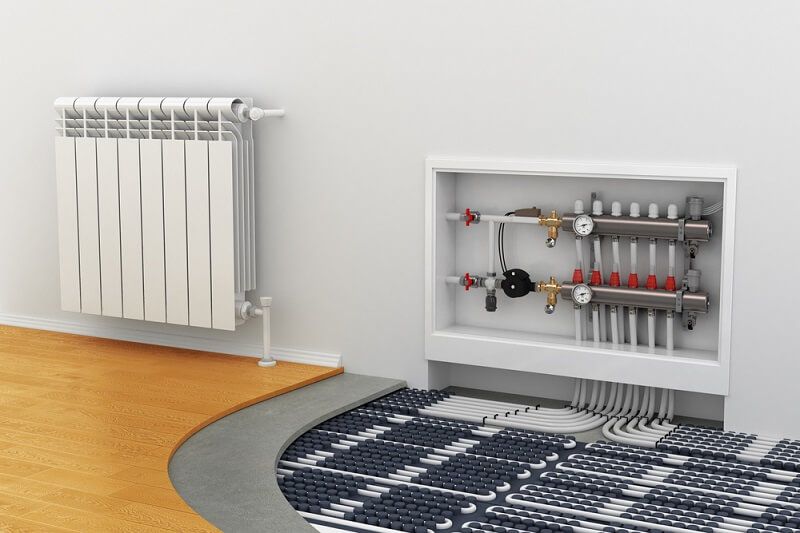Can a Hydronic System Also Provide Cooling?

For years, hydronic systems have been associated with the mechanism of heating the environment to create an optimal temperature. However, what many don’t know is the fact that the hydronic system has the potential to provide cooling as well.
It is, in essence, an immaculate mechanism to keep your homes moderately temperate amidst extreme climatic conditions.
To many potential customers, the issue arises when they look for a cooling system to control the temperatures during the excruciatingly hot days, along with investing in a hydronic system for the radiation of heat. Installing two separate systems to provide optimal temperature control does not stand as an appropriate approach for many buildings and homeowners who are in search of a cost-effective solution.
Fortunately, the hydronic system provides an economical solution by providing heating and cooling facilities, combined with the benefits of efficient distribution and reduced invasiveness by the system.
How does Hydronic Cooling work?
Hydronic cooling works in essentially the same way as hydronic heating. Hydronic heating uses water or steam to heat a space, consequently maintaining constant temperatures.
Hydronic cooling requires a slightly different mechanism, as it uses chilled water, making a cold-water source an essential requisite of the system. The temperature of this water is required to be only a few degrees lower than the preferred indoor temperature. As this cold water circulates through the pipes in the underfloor, ceilings, and walls, it helps to cool down the rooms by absorbing the heat from the building zones.
The efficiency of water in regulating temperatures is highly credible, not only to conduct and absorb heat but also to sufficiently transfuse cooling around. The high prevalence of hydronic systems can be attributed to the incredible ability of water to absorb massive volumes of heat energy – almost 3000 times the same volume of air, thus warming the air around.
Many of the hydronic heaters serve a dual function, performing to radiate heat to the environment during intensely cold periods, along with additional features amalgamated with the pump, including the refrigerant valves that can be systematically controlled to operate as chillers. In such cases, both hot and cold water are looped together in the system to provide the desired temperature in each room.
Where can Hydronic Cooling Systems be installed?
Factors like humidity might deter the performance of the hydronic coolers, providing a better outcome in drier regions.
Using water as a heat transfer medium to retain a temperate atmosphere in residential units undoubtedly offers a viable option. Apart from being an affordable choice for residential settings, the budget-friendly hydronic heating and cooling systems are popularly used in commercial landscapes as well.
The use of hydronic systems far extends residential purposes, extending to dormitories, hospitals, nursing homes, and educational facilities. Hydronic systems are often installed in high-rise buildings and spacious campuses to concurrently provide heating and cooling facilities. Is Hydronic Cooling effective?
Unlike the traditional cooling systems, which make use of substantial volumes of energy and result in uneven temperatures of the surroundings, hydronic cooling is known for its efficiency, creating an even internal environment with the required ventilation.
Hydronic cooling systems are relatively easy to install, activate, and control. Offering low installation and operating costs, as it silently operates through the pumps, the hydronic cooling enables the users to set their desired temperatures throughout the homes, controlling the degree of coolness in each room while providing a clean and unobtrusive supply of energy.
Are Hydronic Coolers the right choice?
Even though hydronic systems are mostly known for delivering phenomenal heating services to indoor spaces, their potential to create a conducive, cool environment cannot be dismissed. One of the most economical yet efficient forms of temperature regulators, the hydronic heating and cooling system is a perfect choice for residential and commercial setups.
Before installing the system, it is essential to run a quick check and discuss the details with an experienced technician to acquire maximum benefits of the system. At Quick Air, our experts are available to guide you through, ensuring to curate the best fit system pertaining to your construction layout and temperature needs.
